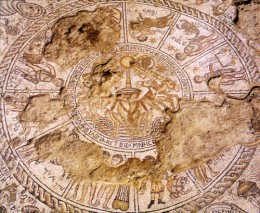
 |
Freethought & Rationalism ArchiveThe archives are read only. |
|
|
#21 | |||
|
Veteran Member
Join Date: May 2007
Location: Arizona
Posts: 1,808
|
Reed is a fairly reputable xtian scholar....at least he never tries to inflate his family farm that he found at "Nazareth" into a city.
However, Sepphoris is another matter. http://www.sciencedaily.com/releases...0811072503.htm Quote:
Quote:
 Quote:
|
|||
|
|
|
|
#22 |
|
Veteran Member
Join Date: Mar 2002
Location: Southwest USA
Posts: 4,093
|
|
|
|
|
|
#23 |
|
Contributor
Join Date: Sep 2008
Location: Seattle
Posts: 27,602
|
Do you think a group of fisherman he picked up an the shore were probably literate?
From a past thread, perhaps JC was a Jew from Rome. Give to Caesar what is Caesar', to god what is god's. I read at one point Judaism became a fad religion of sorts. The Romans liked the strong patriarchal Jewish family and work ethic. The JC as as a Roman Jewish outsider can explain literacy, knowledge of Judaism, and the fact he appears as an adult on the scene. Consider Bin Laden as an example of sorts. Educated, literate, and ended up hanging with semiliterate disaffected Muslims. |
|
|
|
|
#24 | |
|
Veteran Member
Join Date: Feb 2012
Location: Auburn ca
Posts: 4,269
|
Quote:
The best there is argue it, and it comes down to interpretation of evidence. The most recent archeology has shown Capernaum to be poor in the first century, and this is recent material that is forcing certain scholars to rethink their work. Reeds work shows a great socioeconomic division between a rich Sepphoris and the agrarian culture like Nazareth that was becoming poorer. Nazareth was sort of a work camp to feed Sepphoris in my personal view, and a few scholars almost state this verbatim. These poor people more then likely were forced of farm land taken by greedy land owners placed in power by Antipas. No matter what the recent work points to, there is still a gap in our knowledge to the exact cultural lifestyle of Nazareth. hell we cant even determine anything due to the complete lack of evidence from pre 70 CE Nazareth. You get people I find nutty that even argue Nazareth didn't exist at that time. |
|
|
|
|
|
#25 | |
|
Veteran Member
Join Date: Feb 2012
Location: Auburn ca
Posts: 4,269
|
Quote:
Nope both Fishermen and Tektons from Galilee and Nazareth lived some pretty crappy lives, said to be below that of a peasant. My personal view is they were illiterate. Its a guess though. |
|
|
|
|
|
#26 | |
|
Veteran Member
Join Date: Feb 2012
Location: Auburn ca
Posts: 4,269
|
Quote:
Im positive Hellenism was alive and flourishing In Antipas "Jewel of Galilee" We already know there was a cultural socioeconomic divide We know Antipas placed his people in the government We know they took a pro Roman stance Heres a bit from Reed on this. http://www.ibr-bbr.org/files/bbr/BBR...ologyJesus.pdf Reed is especially critical of Eric Meyers and James F. Strange4 (whose regional orientation is nonetheless axiomatic for him) for their suggestion toward the high end of this estimate (p. 65). He is concerned with these and other estimates, but he goes out of his way to distance himself from the facile assumption by which "high numbers are equated with urbanization, and urbanization in turn correlates with Hellenization" |
|
|
|
|
|
#27 |
|
Veteran Member
Join Date: Feb 2012
Location: Auburn ca
Posts: 4,269
|
Why was there such a extreme socioeconomic difference between Capernaum and Sepphoris?
Sepphoris was a Hellenistic Judaism, pro Roman city with its Hellensitic government appointed by Antipas himself. Nazareth was more or less a agricultural work camp to keep Sepphoris well fed. Capernaum was a strictly peasant class poor Jewish city, the fishing trade was controlled by the Hellenistic overlords in Antipas government who rented boats to the peasants who were also heavily taxed on the money they made. http://www.jaygary.com/archaeology.shtml archaeologists have been lately focusing on the influence of Sepphoris on the regional economy of Galilee. Though Herod Antipas was cautious to avoid a direct confrontation with Jewish culture, he did fund his kingdom’s construction through wealth generated through agriculture. Large tracts of land outside the walled city were confiscated as royal lands and turned into estates that urban landowners could manage. In the surrounding villages that were not seized (i.e. perhaps Nazareth), he introduced more productive agricultural methods, permitted fewer fallow years and promoted monocropping over subsistence polycropping. This left village peasants vulnerable to drought and crop failure. Herodian taxes forced peasant families to go into debt, and even sell the land they owned and to become sharecroppers. Reed states, "Architectural grandeur increased at one end of the Galilean society by making poverty increase at the other. Again, Sepphoris illustrates the clash between a Herodian "commercial kingdom" and an ancient "covenantal kingdom" Rather than be wiped out by class warfare, or swept up into colonial revolt, the Jewish citizens of Sepphoris took a pro-Roman stance throughout the war, |
|
|
|
|
#28 | ||
|
Veteran Member
Join Date: Nov 2005
Location: Texas
Posts: 3,884
|
Quote:
Cheerful Charlie |
||
|
|
|
|
#29 | ||
|
Veteran Member
Join Date: Nov 2007
Location: Chicago, IL
Posts: 3,058
|
Quote:
Jeffrey Quote:
|
||
|
|
|
|
#30 |
|
Contributor
Join Date: Sep 2008
Location: Seattle
Posts: 27,602
|
For the average person in the region how expensive would writing materials be?
Synagogues as I understand it would have one copy of scripture. I doubt a lot of Jewish homes would have had personal copies of the OT. Scriptures would be read and perhaps memorized at the synagogues. |
|
|
| Thread Tools | Search this Thread |
|